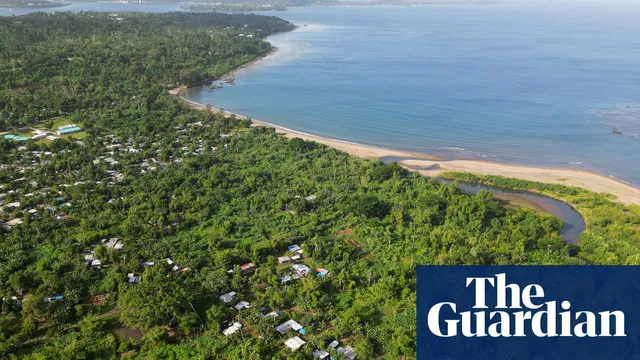
Pacific islands push for ecocide recognition at international court
2024-09-09 00:00- Vanuatu, Fiji, and Samoa proposed to the ICC to recognize ecocide as a crime, aiming to amend the Rome Statute.
- The proposal seeks to hold individuals accountable for severe environmental damage, targeting polluting corporations and state leaders.
- If successful, this recognition could lead to significant legal changes and increased accountability for environmental destruction.
Express your sentiment!
Insights
On Monday, Vanuatu, Fiji, and Samoa submitted a proposal to the International Criminal Court (ICC) in New York, advocating for the recognition of ecocide as a crime alongside genocide and war crimes. This proposal aims to amend the Rome Statute, which serves as the foundation for the ICC, to include ecocide, defined as acts causing severe and long-term environmental damage with knowledge of the consequences. The proposal is part of a broader movement to hold individuals accountable for environmental destruction, particularly targeting leaders of polluting corporations and state officials. The process of discussing this proposal is expected to take several years and may face significant opposition, although many countries may not openly resist it. Philippe Sands, a prominent international lawyer, expressed confidence that ecocide will eventually gain recognition, highlighting the growing awareness of climate change and its impacts. Belgium has already adopted ecocide as a crime, and the European Union has adjusted its guidelines to include it as a qualified offense, with Mexico also considering similar legislation. The ICC, established in 2002, has primarily focused on genocide, war crimes, and crimes against humanity. An amendment in 2010 allowed for the inclusion of crimes of aggression. However, the court's effectiveness is limited by the absence of major greenhouse gas emitters like the US, China, and Russia as parties to the ICC. The recognition of ecocide could pave the way for future prosecutions, but it may take up to a decade before any charges are brought, even if the changes are implemented. The campaign for ecocide recognition has been ongoing since 2017, with Vanuatu making the initial call in 2019. Advocates believe that formal recognition of ecocide is crucial for fostering broader acceptance of the concept and addressing the urgent threat posed by climate breakdown. As awareness of environmental issues grows, the push for legal accountability for ecological harm is becoming increasingly significant.
Contexts
Pacific island nations are increasingly advocating for the recognition of ecocide at the international court, highlighting the urgent environmental challenges they face. Rising ocean levels are causing significant water contamination in Vanuatu, where residents are experiencing saltwater intrusion into their well water, rendering it unsafe for consumption. This crisis underscores the vulnerability of these island nations to climate change and environmental degradation. In this context, the recent visit of US Deputy Secretary of State Kurt Campbell to dedicate the new US Embassy in Vanuatu reflects a strategic engagement by the United States with Pacific island nations amid rising Chinese military influence in the region. The establishment of the embassy signifies a commitment to support these nations as they confront pressing environmental issues. Additionally, Fiji's Prime Minister Sitiveni Rabuka's unexpected achievement in athletics at the age of 75 serves as a reminder of the resilience and spirit of Pacific leaders. His bronze medal win at the Oceania Athletics Championships highlights the importance of leadership and representation in the face of regional challenges. These developments collectively illustrate the pressing need for international recognition of ecocide, as Pacific island nations strive to protect their environments and secure their futures against the backdrop of climate change and geopolitical tensions.